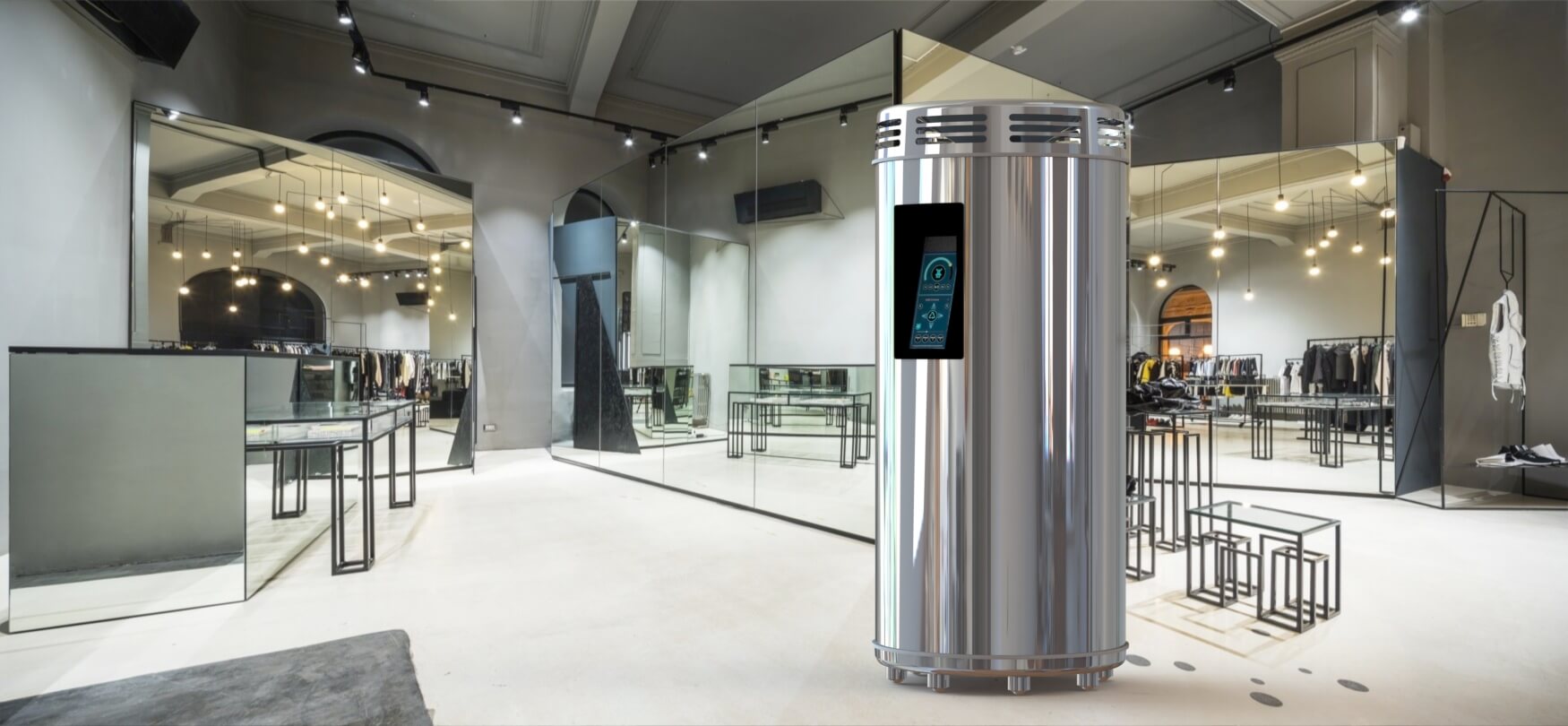The expertise offered by a business support programme is allowing a North East innovator to rapidly bring a new air sterilisation product to market.
Founded in 2016, TRL9 is an industrial research, development and deployment company, with a particular expertise in surface engineering and specialist materials. But the need for innovation sparked by the Covid-19 pandemic led them to develop an air sterilisation system which eliminates the majority of airborne viruses.
With the help of Ian Barrett, CAD specialist at the Sustainable Advanced Manufacturing (SAM) Project – which offers a range of support to the region’s SME manufacturing businesses – they have been able to fast-track the development process.
Dr Bryan Allcock, founder and CEO of TRL9, said: “When you’re in my line of business, money isn’t always the most appropriate form of support, sometimes you need expertise.
“We have nine people in TRL9 and there are areas where we don’t have expertise, we have no one who can use computer-aided design (CAD) or computer-aided manufacturing (CAM) software, but this is an area of expertise SAM can provide.
“The outputs for us were initially a set of drawings and a bill of materials, but then they were able to help with the design as I didn’t know what the final product was going to look like and Ian from SAM came up with the design we’re now using, they also did most of the build of the first unit.
“Without the support of SAM, it would have taken us a lot longer to be able to get to where we are now, so we’ve had a much more rapid route to market. That has included introducing skill sets that we just didn’t have and couldn’t afford.”
Dr Allcock, who is originally from Birmingham, moved to the North East from Dorset, where he had been working in the aerospace industry, before setting up TRL9. He has a PhD in corrosion engineering, focussing on coatings, with TRL9’s most developed technology being responsible for coating the decks of the Queen Elizabeth and the Prince of Wales aircraft carriers so that F-35 fighter jets can land on them.
The company has a portfolio of research projects, with clients including the Ministry of Defence, BAE Systems and Halliburton, usually looking at things that are materials or surface engineering related.
“We have projects at various TRL stages,” said Dr Allcock. “We currently have a PHD student from Durham who is looking at thermoelectric coating, where you use the heat from your body to charge the little watch on your arm, so you never need to plug it into the mains. We’ve also got an oil and water separation system, a project looking at high entropy alloys and another involving solar fluidics, which SAM is actually helping us with at the moment.”
The SAM project has allowed TRL9 to develop a working prototype of their air sterilisation system that they can take to industry.
SAM is a £10.9m project to help SMEs in the North East develop new products and processes.
The programme is a collaboration between ERDF who is providing £5.77m funding (£2.6million from 2014-2020 and £3.1million from 2020-2023) and the University of Sunderland who are managing and, alongside industry, are investing £5.15m in delivery of this project.
Ian Barrett, Computer Aided Design and Engineering Specialist at SAM, said: “TRL9 is a great example of how the variety of help available through SAM, with our broad range of skills and expertise, combined with the access to funding, can be transformational for SMEs.
“For a lot of companies looking to innovate and bring new products to market, there are so many barriers – especially when it comes to product design – which can prevent them from bringing new products and services to market, however the support from the SAM Project can really help eliminate those challenges.”
The project has over £1m of industry leading capital including 3D printers, I4 rigs and VR/AR equipment and software to encourage SME engagement with advanced technology. The project also has grants of up to £50,000 available to support capital/product validation/tooling and other financial inhibitors to driving strategic development of both product and process.
Dr Allcock added: “I only have positive things to say about SAM, the guys there are fabulous and they’re very knowledgeable. There’s no hidden agenda for them, they’re not trying to sell something. I have already recommended SAM to two organisations that they are now supporting, that’s two further projects on the back of the work I’ve done with them, so I think that’s a pretty good accolade.”



